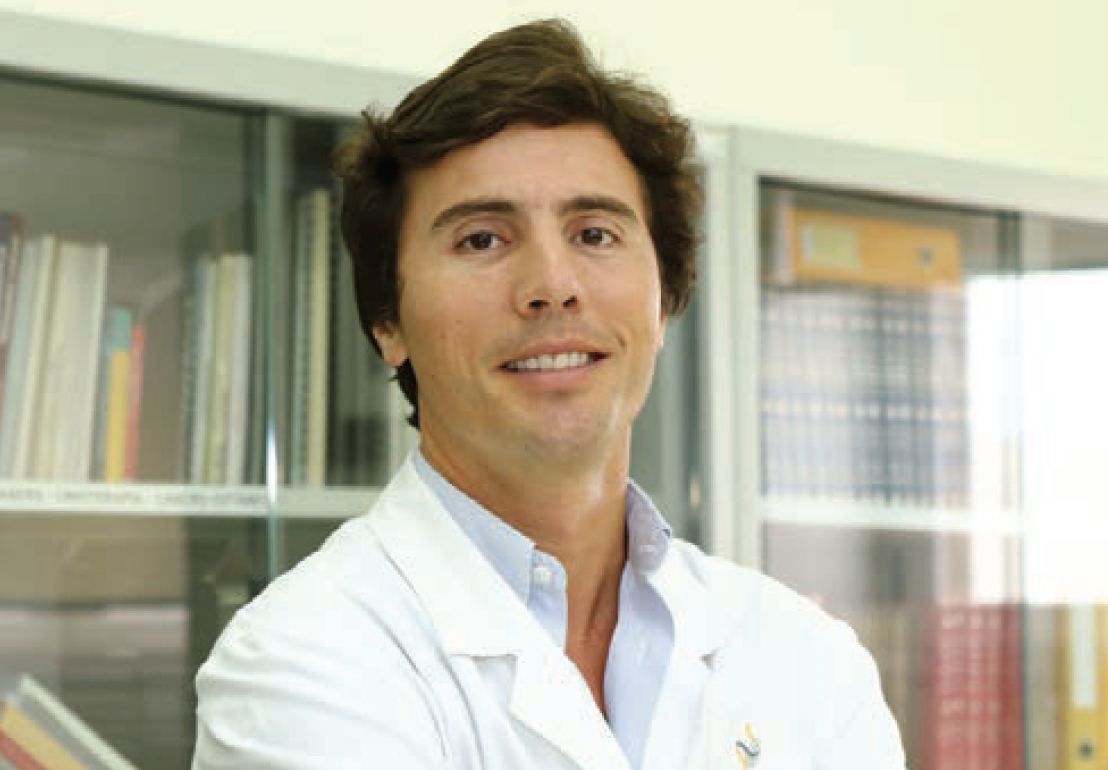 Dr Torres is professor of dermatology at the Instituto de Ciências Biomédicas Abel Salazar at the University of Porto in Porto, Portugal. He received his medical degree from the faculty of medicine, University of Porto; completed a residency program in dermatology and venereology at Centro Hospitalar Universitário do Porto (CHUP); and finished his PhD thesis in 2014 studying the role of psoriasis (PsO)-associated systemic inflammation in atherosclerosis.
Dr Torres is professor of dermatology at the Instituto de Ciências Biomédicas Abel Salazar at the University of Porto in Porto, Portugal. He received his medical degree from the faculty of medicine, University of Porto; completed a residency program in dermatology and venereology at Centro Hospitalar Universitário do Porto (CHUP); and finished his PhD thesis in 2014 studying the role of psoriasis (PsO)-associated systemic inflammation in atherosclerosis.
Currently, he is the head of the immunodermatology unit (PsO, atopic dermatitis [AD], and autoimmune diseases) and clinical trials unit of the department of dermatology of CHUP.
Dr Torres has been involved in the development of national guidelines for the treatment of PsO, has received the Juvenal Esteves Prize from the Portuguese Society of Dermatology and Venereology for research projects in PsO and psoriatic arthritis in the past 4 years, and, in 2018, he received two research grants for projects regarding AD.
He serves as associate editor of Acta Médica Portuguesa, Drugs in Context, and Journal of the Portuguese Society of Dermatology and Venereology, and Dr Torres belongs to the editorial board of Drugs and the Fondation René Touraine book, Therapeutics in Dermatology.
Currently, Dr Torres is the president of the Portuguese Group of Psoriasis and an International Psoriasis Council member. He has published many articles on PsO and AD and has been the editor of the Portuguese book Psoriasis and Psoriatic Arthritis. His main research topics in dermatology are the immunodermatology, immunology, and immunopharmacology of PsO and AD.

Q. What part of your work gives you the most pleasure?
A. Fortunately, I am very happy with my work and my daily life. My work includes patient care, medical education (medical students and dermatology residents), clinical research, clinical trials, and publishing, so every day is different, and I enjoy each of the different activities.
Patient care is the main reason why I decided to become a doctor, and it gives me the pleasure of diagnosis, treatment, and happiness in improving patients’ health and quality of life. Teaching allows me to be with younger colleagues, helping them to grow professionally, but it also provides a reminder to progress and update myself daily. Finally, clinical research and publication help me promote dermatology and disseminate knowledge. So, fortunately, I can say that I feel fulfilled in what I do every day.
Q. Which patient had the most effect on your work and why?
A. I am perfectly aware of the patient who most influenced my work and career. At the beginning of my residency, just at the beginning of the use of biological agents in PsO, we treated a patient with severe PsO with infliximab (Remicade). The clinical response was so impressive and the improvement in the patient’s life was so great that I became aware of the role we could have in improving patients’ lives. It was this patient who led me to be particularly interested in PsO and dedicate much of my time to the treatment and research of PsO.
Q. What is the best piece of advice you have received and from whom?
A. In my fourth year of medical school, in an internal medicine class, our teacher gave us a piece of advice that I always try to keep in mind and that I think makes me a better doctor: “To make a difference to each patient, you must use both science and your humanity.”
Q. What is the greatest political danger in the field of dermatology?
A. The rapid advance of technology, and in particular the emergence of artificial intelligence (AI), will have a major impact on all areas of society and, of course, also on medicine. In dermatology, where the image is so important, the impact may be even greater. The advantages that come with technology and that may come with AI are enormous, but it will be critical to protect the doctor-patient relationship from being diminished. Technology is very important for the advancement of medicine and dermatology, but one can never forget or neglect the human component of medicine.

























